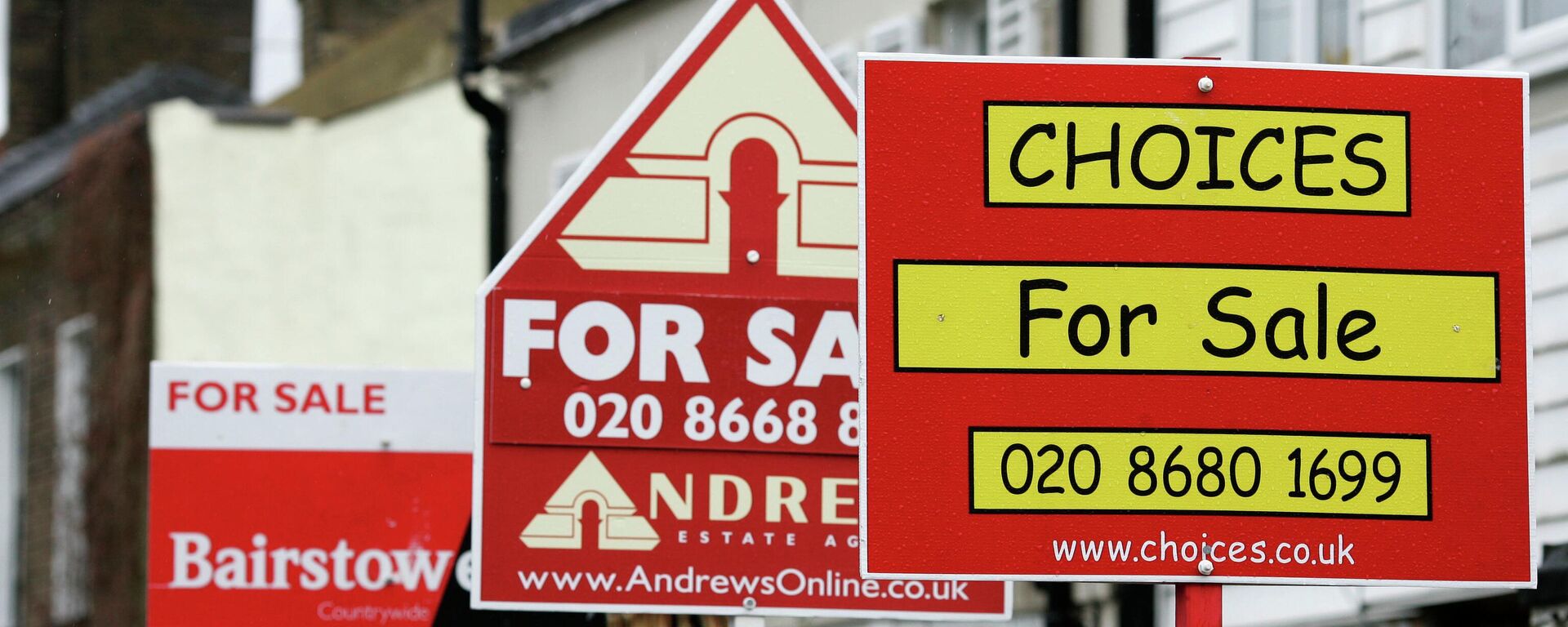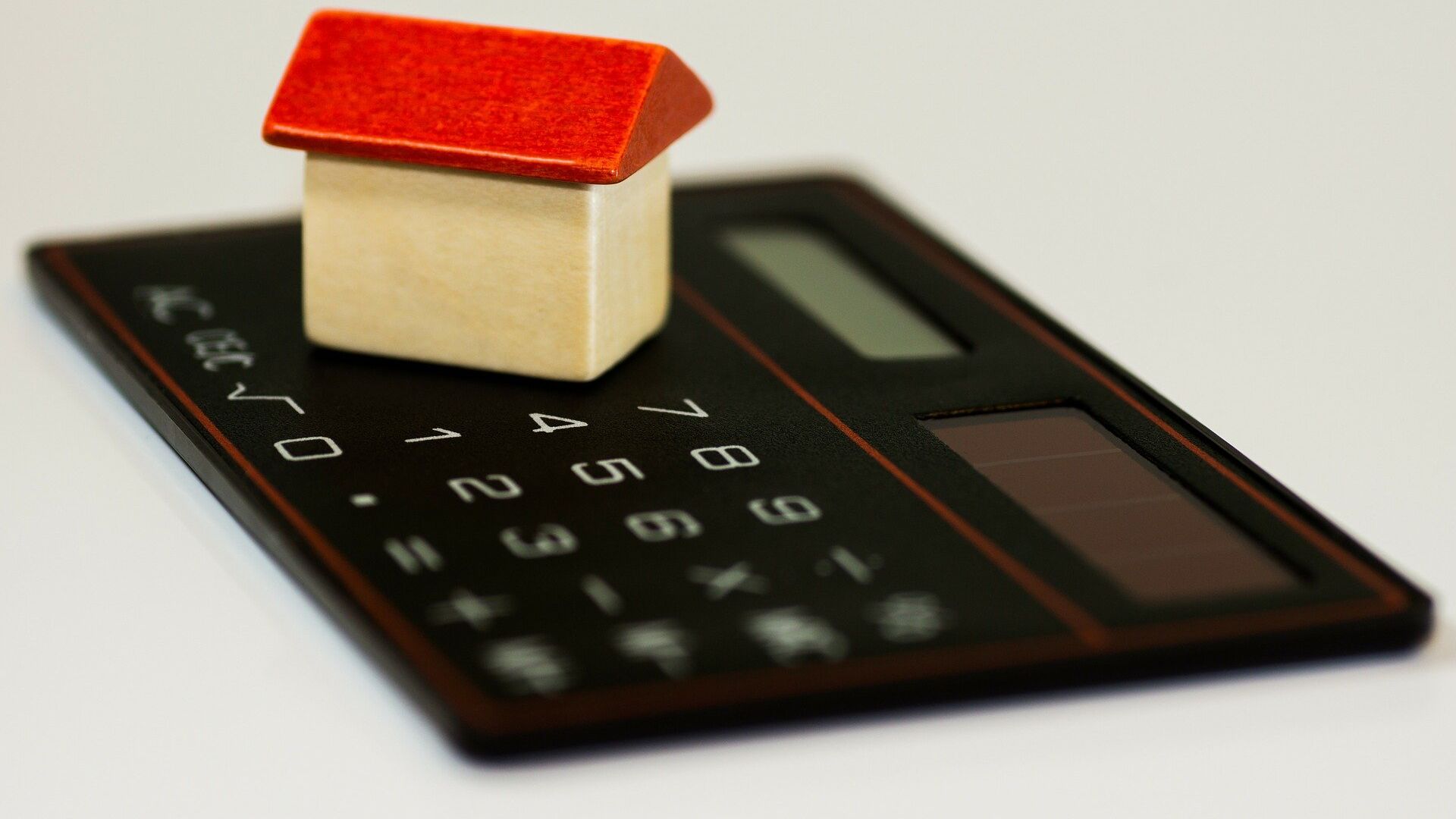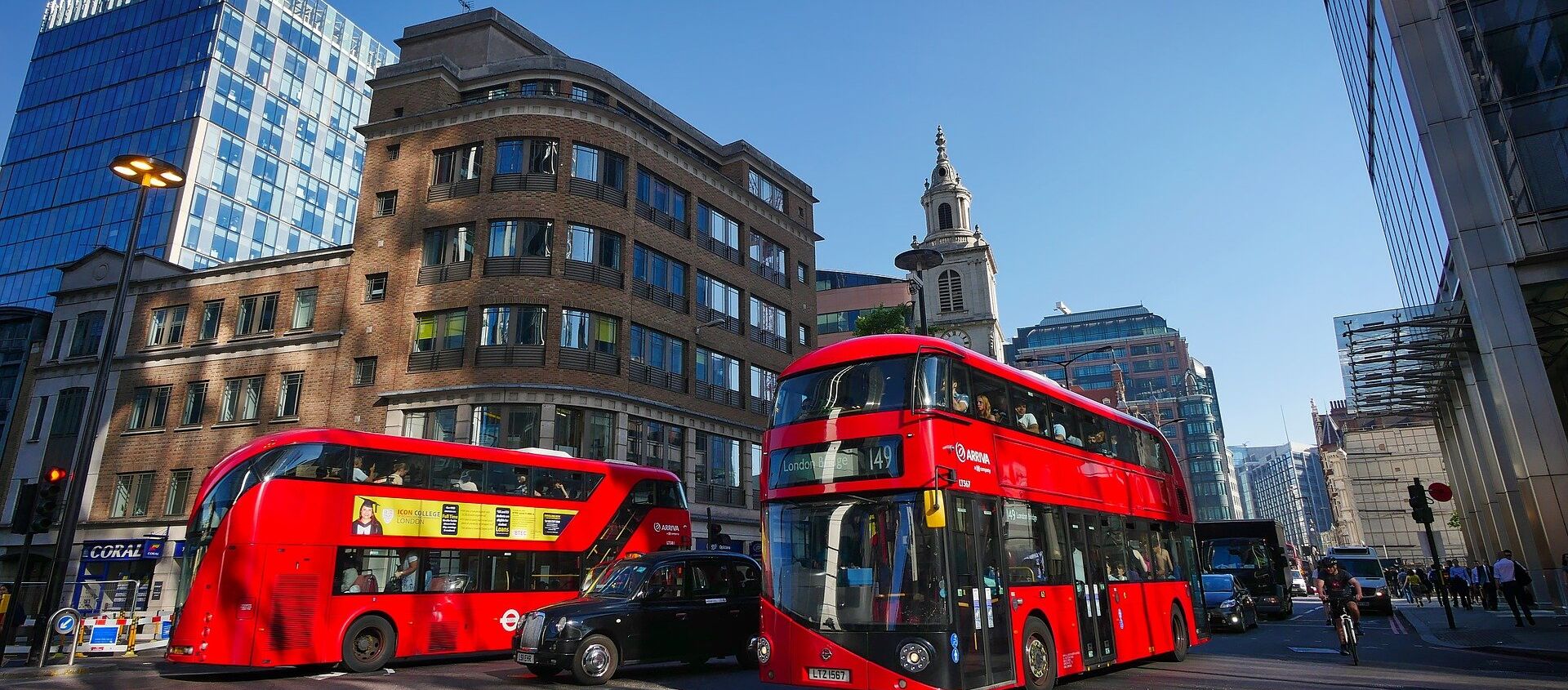https://sputnikglobe.com/20240101/10000-uk-homeowners-face-mortgage-prisoner-crisis-1115931138.html
10,000 UK Homeowners Face 'Mortgage Prisoner' Crisis
10,000 UK Homeowners Face 'Mortgage Prisoner' Crisis
Sputnik International
House prices in the UK have continued to rise faster than incomes despite the economic turmoil of the COVID-19 pandemic and the inflationary crisis. However, they are predicted to fall now, leaving homeowners in negative equity limbo.
2024-01-01T14:47+0000
2024-01-01T14:47+0000
2024-01-01T14:47+0000
economy
united kingdom (uk)
financial conduct authority (fca)
treasury
england
https://cdn1.img.sputnikglobe.com/img/104387/03/1043870365_0:100:1920:1180_1920x0_80_0_0_92639e6b519af36b4871e3b2b88ad65d.jpg
British opposition MPs have blamed the Conservative government over fears more than 10,000 households could become “mortgage prisoners,” per recent data obtained through a Freedom of Information request.A report by the Office for Budget Responsibility (OBR), released following a freedom of information request, revealed that the public body fears house prices could fall by seven percent in 2024.Coupled with a near-doubling of the number of new mortgages lent at 95 percent or more of the property’s value, that could leave 10,000 homeowners unable to pay off their mortgages by selling up, preventing them from moving.The Financial Conduct Authority (FCA) said 2.26 percent of homes were purchased with a loan-to-value ratio of 95 percent in 2021, but estimates show that that figure rose to 4.25 percent last year.That leaves 10,650 properties at risk of falling into negative equity, where the remainder owed on the mortgage is less than the property's market value.Sarah Olney, a Treasury spokesperson for the small opposition Liberal Democrat party, blamed the government for the situation.“Soaring mortgage rates combined with falling house prices are creating a negative equity ticking time bomb,” Olney told the press. “Those falling into negative equity face becoming mortgage prisoners, trapped in their home and at risk of being hit by higher rates.”“Ministers and the regulator need to come up with a plan to help homeowners on the brink,” she added. “The Conservative government crashed the economy and sent mortgage rates through the roof; they have a responsibility to help those now paying the price.”The Lib Dems appealed to voters ahead of this year's expected general election with the promise of a mortgage protection fund, which they claimed could be funded by reversing £3 billion ($3.8 billion) of tax cuts to businesses made under the Tory government.The surge in interest rates over the past couple of years has exacerbated the situation. Homeowners are paying far more to service their mortgage since the Bank of England raised interest rates to 5.25 percent, the highest level in decades to control rampant inflation that hit double figures late in 2022.Those soaring prices were fuelled by the government’s £400-billion ($510-billion) splurge during the COVID-19 pandemic, when many workers were paid to stay at home, followed by Western sanctions and embargoes on fuel, food, and fertilizer imports from Russia — policies which the opposition parties continue to support.Interest rates were set by the Chancellor of the Exchequer, the UK’s finance monster, until 1997, when then-chancellor and later PM Gordon Brown, a former leader of the opposition Labour Party, handed control to the central bank and its unelected Monetary Policy Committee.
https://sputnikglobe.com/20221003/housing-in-uk-more-unaffordable-than-ever-thanks-to-pandemic-property-boom-1101461343.html
https://sputnikglobe.com/20180418/uk-housing-crisis-explained-1063669251.html
united kingdom (uk)
england
Sputnik International
feedback@sputniknews.com
+74956456601
MIA „Rossiya Segodnya“
2024
Chimauchem Nwosu
https://cdn1.img.sputnikglobe.com/img/07e7/09/01/1113046371_0:99:1536:1635_100x100_80_0_0_9c5c627283eca931c39fe4852bbb301c.jpg
Chimauchem Nwosu
https://cdn1.img.sputnikglobe.com/img/07e7/09/01/1113046371_0:99:1536:1635_100x100_80_0_0_9c5c627283eca931c39fe4852bbb301c.jpg
News
en_EN
Sputnik International
feedback@sputniknews.com
+74956456601
MIA „Rossiya Segodnya“
Sputnik International
feedback@sputniknews.com
+74956456601
MIA „Rossiya Segodnya“
Chimauchem Nwosu
https://cdn1.img.sputnikglobe.com/img/07e7/09/01/1113046371_0:99:1536:1635_100x100_80_0_0_9c5c627283eca931c39fe4852bbb301c.jpg
uk homeowners, uk mortgage prisoners, negative equity, loan-to-value ratio, financial conduct authority, uk house prices, sarah olney, uk mortgage rates, interest rates, bank of england's monetary policy committee.
uk homeowners, uk mortgage prisoners, negative equity, loan-to-value ratio, financial conduct authority, uk house prices, sarah olney, uk mortgage rates, interest rates, bank of england's monetary policy committee.
10,000 UK Homeowners Face 'Mortgage Prisoner' Crisis
House prices in the UK have continued to rise faster than incomes despite the economic turmoil of the COVID-19 pandemic and the inflationary crisis. However, they are predicted to fall now, leaving homeowners in negative equity limbo.
British opposition MPs have blamed the Conservative government over fears more than 10,000 households could become “mortgage prisoners,” per recent data obtained through a Freedom of Information request.
A report by the Office for Budget Responsibility (OBR), released following a freedom of information request, revealed that the public body fears house prices could fall by seven percent in 2024.
Coupled with a near-doubling of the number of new mortgages lent at 95 percent
or more of the
property’s value, that could leave 10,000 homeowners unable to pay off their mortgages by selling up, preventing them from moving.
The Financial Conduct Authority (FCA) said 2.26 percent of homes were purchased with a loan-to-value ratio of 95 percent in 2021, but estimates show that that figure rose to 4.25 percent last year.
The loan-to-value (LTV) ratio is a simple way to understand how much of a property a buyer is trying to purchase with borrowed money versus how much of its own money is being put into it.

3 October 2022, 17:36 GMT
That leaves 10,650 properties at risk of falling into negative equity, where the remainder owed on the mortgage is less than the property's market value.
Sarah Olney, a Treasury spokesperson for the small opposition Liberal Democrat party, blamed the government for the situation.
“Soaring mortgage rates combined with falling house prices are creating a negative equity ticking time bomb,” Olney told the press. “Those falling into negative equity face becoming mortgage prisoners, trapped in their home and at risk of being hit by higher rates.”
“Ministers and the regulator need to come up with a plan to help homeowners on the brink,” she added. “The Conservative government crashed the economy and sent mortgage rates through the roof; they have a responsibility to help those now paying the price.”
The Lib Dems appealed to voters ahead of this year's expected general election with the promise of a mortgage protection fund, which they claimed could be funded by reversing £3 billion ($3.8 billion) of tax cuts to businesses made under the Tory government.
The surge in interest rates over the past couple of years has exacerbated the situation. Homeowners are paying far more to service their mortgage since the Bank of England raised interest rates to 5.25 percent, the highest level in decades to control rampant inflation that hit double figures late in 2022.
Those soaring prices were fuelled by the government’s £400-billion ($510-billion) splurge during the COVID-19 pandemic, when many workers were paid to stay at home, followed by Western sanctions and embargoes on fuel, food, and fertilizer imports from Russia — policies which the opposition parties continue to support.
Interest rates were set by the Chancellor of the Exchequer, the UK’s finance monster, until 1997, when then-chancellor and later PM Gordon Brown, a former leader of the opposition Labour Party, handed control to the central bank and its unelected Monetary Policy Committee.





